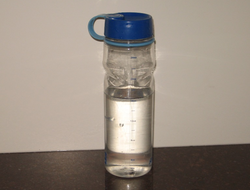Sports drinks: Do you need one, which one?
Published: February 11, 2022
Sports drinks are part of a multi-billion dollar "sports themed" food and beverage market.
The original "Gatorade" was developed in the mid 1960s by researchers at the University of Florida for that university's sports athletes.
Sports beverages are intended to aid fluid replacement and associated electrolytes (potassium and sodium) lost through vigorous and sustained athletic performances.
There are now more than 20 "sports drinks" available to consumers.
The majority of sports drinks and/or post workout beverages provide the user with water, some form of carbohydrate, and sodium and potassium.
These nutrients replenish fluid and electrolytes lost through sweating, and energy to enhance your workout and post workout recovery.
If you are considering whether you should use a sports drink, either during or after your workout or physical activity session, keep the following in mind:
- Research for sports beverages and for chocolate milk, in relation to post workout recovery and fluid and electrolyte replacement, has been with athletes.
- It is possible that athletes respond differently to sports drinks when compared to the average 30-60 minute, 4-5 times per week exerciser.
Most people do not need sports drinks either during or post workout as water is usually sufficient for hydration purposes.
Provided your diet is varied and includes a balance of carbohydrate, protein and fat, from a variety of food sources, the food you consume within a few hours after your workour should be sufficient to replace electrolytes and macronutrients.
Whether people need a sports drink to hydrate and replenish electrolytes is controversial.
Everyone has unique requirements so there is no general rule that fits everyone. However, if your work out lasts for...link to the full article to learn more.
References
1.
Gropper, S.S., Smith, J.L. & Groff, J.L. (2005). Advanced Nutrition and Human Metabolism (4thEd.). Belmont, CA: Thomson Wadsworth.
2.
Whitney, E. & Rady Rolfes, S. (2005). Understanding Nutrition. Belmont, CA: Thomson Wadsworth
3.
Benardot, D. (2006). Advanced Sports Nutrition. Human Kinetics. USA
4.
Karp JR et al. (2006). Chocolate milk as a post-exercise recovery aid. Int J Sport Nutr Exerc Metab 16(1): 78-91.
5.
Elliot TA et al.(2006) Milk ingestion stimulates net muscle protein synthesis following resistance exercise. Med Sci Sports Exerc; 38:667-674.
6.
Hartman JW et al. (2007). Consumption of fat-free fluid milk after resistance exercise promotes greater lean mass accretion than does consumption of soy or carbohydrate in young, novice, male weightlifters. Am J Clin Nutr; 86(2) :373-81.
7.
Shirreffs SM et al. (2007). Milk as an effective post-exercise rehydration drink. Brit J Nut; 98: 173-180.
8.

